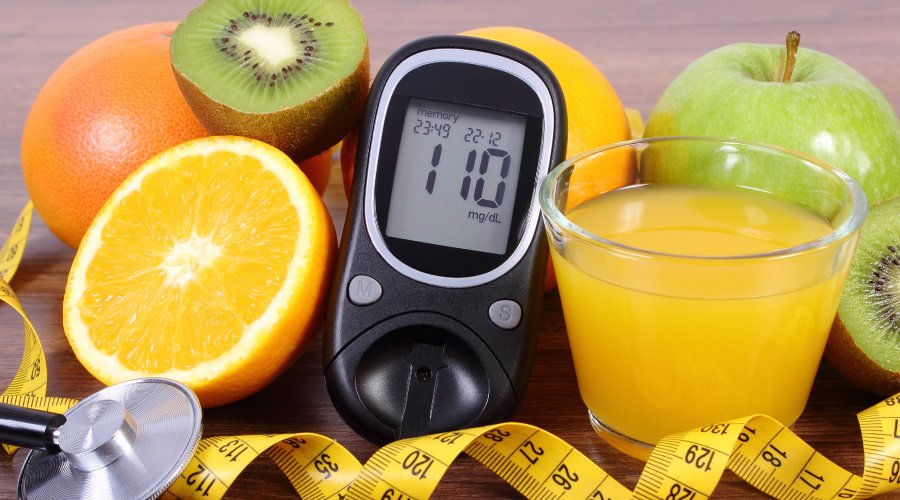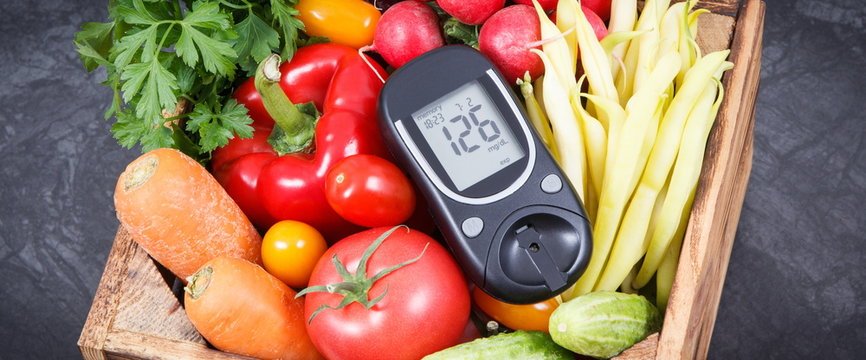Blood sugar control is essential for overall wellness, energy, weight management, and long-term health. When your glucose levels are stable, you feel more energetic, mental clarity improves, and the risk of chronic conditions like type 2 diabetes reduces significantly.
In 2025, with processed foods, sedentary lifestyles, and chronic stress becoming more common, adopting natural strategies to maintain healthy blood sugar is more important than ever. This guide presents evidence-based, natural blood sugar tips you can begin practicing today—along with supplement support from trusted sources like Glucoo6 .
Many people supporting their diet also use Glucoo6 (available via https://glucoo6.ca/) to complement natural strategies in maintaining stable glucose.
Why Natural Control of Blood Sugar Matters
Before diving into actionable tips, let’s explore why managing blood sugar naturally is important:
- Reduces disease risk: High blood sugar over time damages blood vessels, nerves, kidneys, and increases risk of cardiovascular disease.
- Improves energy & mood: Spikes and crashes in glucose can lead to fatigue, irritability, brain fog.
- Supports weight management: Excess glucose often gets stored as fat; stable glucose supports metabolism.
- Enhances longevity: Good metabolic control contributes to healthy aging and reduced inflammation.
Rather than relying solely on medications (especially for those with borderline glucose levels), natural strategies can support and complement medical care.
1. Eat Low-Glycemic, Fiber-Rich Foods
Understanding Glycemic Index & Load
Foods break down into glucose at different rates. The Glycemic Index (GI) measures how quickly a food raises blood sugar; Glycemic Load (GL) considers both how fast and how much carbohydrate is in a typical serving. Choosing low GI/GL foods helps prevent sudden spikes.
Key Foods to Embrace
- Non-starchy vegetables: spinach, kale, broccoli, cauliflower
- Legumes & beans: lentils, chickpeas, black beans
- Whole grains in moderation: quinoa, barley, steel-cut oats
- Nuts and seeds: almonds, walnuts, chia, flaxseeds
- Berries & low-sugar fruits: strawberries, blueberries, apples
- Healthy fats & proteins: olive oil, avocados, eggs, fish
Meal Composition Strategy
- Always include fiber + protein + healthy fat at each meal to slow digestion
- Avoid large servings of refined carbs
- Use portion control — even healthy carbs can push glucose high if overeaten
2. Stay Active and Move Frequently
The Role of Exercise in Blood Sugar
Physical activity helps muscles absorb glucose without insulin, reducing blood sugar levels. Exercise also improves insulin sensitivity, meaning your body needs less insulin to manage glucose.
Best Types of Exercise
- Aerobic / Cardio: brisk walking, cycling, swimming (30 min daily)
- Strength training: weight lifting or resistance bands (2–3x/week)
- High-intensity interval training (HIIT): short bursts of effort, where safe
- Flexibility & mobility work: yoga, stretching, tai chi — reduces stress, supports circulation
Tips to Increase Movement
- Take short walking breaks during work
- Use stairs instead of elevator
- Stand while working or use a standing desk
- Engage in active leisure (gardening, dancing)
3. Prioritize Sleep & Circadian Rhythm
How Sleep Affects Glucose
Poor or inconsistent sleep disrupts hormones (insulin, cortisol, ghrelin) that regulate appetite and metabolism. Chronic sleep deprivation increases insulin resistance.
Sleep Hygiene Tips
- Aim for 7–8 hours nightly
- Maintain consistent sleep-wake times
- Avoid screens, caffeine, heavy meals late at night
- Create a dark, cool, quiet bedroom environment
- Wind down with relaxing routines (reading, gentle stretching, meditation)
4. Manage Stress & Mindful Living
The Cortisol–Glucose Connection
When you feel stressed, your body releases cortisol and adrenaline which can raise blood sugar. Over time, chronic stress weakens metabolic control.
Stress Reduction Techniques
- Deep breathing exercises (e.g. 4-7-8 breathing)
- Progressive muscle relaxation
- Meditation and mindfulness
- Gentle yoga or movement
- Time in nature, walking, gardening
5. Stay Hydrated & Choose Beverages Wisely
Water plays a key role in your metabolism and helps kidneys flush out excess glucose. Dehydration concentrates blood sugar.
Beverage Tips
- Drink at least 8–10 cups (2–2.5 liters) of water per day
- Prefer plain water, herbal teas (green tea, cinnamon tea)
- Avoid sugary sodas, fruit juices with added sugar, sweetened energy drinks
- Limit alcohol intake — especially sweetened mixers
6. Use Targeted Herbs, Nutrients & Supplements
Natural supplements can support glucose regulation—especially when combined with diet and lifestyle habits.
Key Ingredients to Look For
- Berberine: evidence-backed for lowering glucose
- Cinnamon extract (Ceylon type): supports insulin sensitivity
- Alpha-lipoic acid: antioxidant that helps nerve health and glucose metabolism
- Chromium Picolinate: supports insulin function
- Gymnema Sylvestre: reduces sugar absorption and cravings
- Banaba leaf: may enhance glucose uptake
Affiliate Support Option
Many users use Glucoo6 to complement their natural regimen. This supplement is formulated with several of the above ingredients to aid in stable blood sugar levels. Check it out here: https://glucoo6.ca/
(You can mention this link in a few sections naturally, but avoid overuse.)
7. Monitor, Test & Adjust
Tracking Glucose Trends
Use a glucose meter, continuous glucose monitor, or finger-prick tests to monitor how your habits affect blood sugar. Record in a journal:
- Before meals
- After meals (1–2 hours)
- Fasting (morning)
- During different activities
What to Look For
- Sudden spikes after certain foods → avoid or replace
- Patterns of high mornings (Dawn Phenomenon)
- Variability between days
Based on data, adjust portion sizes, timing of meals, or food combinations.
8. Avoid & Minimize Common Pitfalls
Common Mistakes That Disrupt Glucose
- Skipping meals or long fasting leading to rebound high sugar
- Overconsumption of “healthy carbs”
- Reliance on sugary drinks or artificial sweeteners
- Sedentary lifestyle
- Not managing stress or sleep
How to Mitigate
- Eat regular balanced meals
- Combine carbs with protein & fat
- Stay active even lightly
- Use restorative practices
- Periodically review and refine your strategy

9. Create Long-Term Sustainable Habits
Consistency Over Perfection
Small, consistent steps matter more than perfect every day. Build habits:
- Plan meals ahead
- Use reminders to move/walk
- Maintain balance, don’t deprive
Accountability & Support
- Use apps or trackers
- Join support communities
- Work with healthcare providers
10. Sample Daily Plan for Blood Sugar Support
| Time | Habit |
|---|---|
| Morning | Hydrate with warm water + lemon / cinnamon tea |
| Breakfast | Protein + fiber (e.g. oats + nuts + berries) |
| Midday | Gentle walk 10–15 min |
| Lunch | Non-starchy vegetables + moderate whole grains + lean protein |
| Afternoon | Snack: nuts, yogurt, fruit |
| Evening | Strength training or movement |
| Dinner | Light, plant-forward meal with proteins |
| Before Bed | Wind down, no screens, early bedtime |
FAQs About Natural Blood Sugar Tips
Q1. Can natural methods replace medications?
A: Not always. Those with diagnosed diabetes should follow medical advice. Natural strategies complement — not replace — proper treatment.
Q2. When will I see improvements?
A: Many see improvements in 2–4 weeks with consistent habits; significant changes in 3–6 months.
Q3. Are supplements safe?
A: Generally yes if from trusted sources. Check purity, dosage, and consult your doctor, especially if on medication.
Q4. Should I avoid all sugar?
A: Natural sugars from whole fruits are acceptable. Avoid refined and processed sugars.
Q5. Is intermittent fasting helpful?
A: It can be, but use caution. Always monitor glucose while fasting and consult a healthcare provider.
Conclusion
Natural blood sugar tips control in 2025 revolves around a holistic approach:
- A balanced, low-glycemic diet
- Regular physical activity
- Good sleep and stress management
- Smart hydration
- Targeted supplements like Glucoo6 to support your regimen
- Monitoring and adapting
Start with small wins daily. Over weeks and months, these habits compound into stable glucose, better energy, improved health, and reduced disease risk.
👉 If you’d like supplementary support, consider exploring Glucoo6 here: https://glucoo6.ca/


Hey, I just stumbled onto your site… are you always this good at catching attention, or did you make it just for me? Write to me on this website — rb.gy/3pma6x?Erugh — my username is the same, I’ll be waiting.
what ?
what should I write what is this
Turkey travel itinerary Turkey tours packed with surprises! Each region had distinct character and charm. Loved it all! https://r1racegear.com/?p=22798
Hey, I just stumbled onto your site… are you always this good at catching attention, or did you make it just for me? Write to me on this website — rb.gy/ydlgvk?Erugh — my username is the same, I’ll be waiting.
To learn more about our affordable advertising options and how they can benefit your website, visit https://rb.gy/34p7i3?ownenda today. Your success is our priority!
I love your blog.. very nice colors & theme. Did you design this website yourself or did you hire someone to do it for you? Plz answer back as I’m looking to construct my own blog and would like to know where u got this from. cheers
Thank you so much! I really appreciate your kind words. 😊
Yes, I designed the website myself using a simple website builder. You can easily create one too — it just takes a bit of practice and creativity. Wish you all the best with your new blog! 🌸
“Barely legal nymph wants to sin.” Here — https://rb.gy/8rrwju?ownenda
“Barely legal nymph wants to sin.” Here — https://rb.gy/8rrwju?ownenda
“Barely legal nymph wants to sin.” Here — rb.gy/8rrwju?Erugh
Seduction queen wants to strip and post her nudes. Here — rb.gy/8rrwju?Erugh
Seduction queen wants to strip and post her nudes. Here — rb.gy/8rrwju?Erugh
Naughty vixen eager to share her nude pics. Here — rb.gy/8rrwju?Erugh
“Sensual adult nymph seeks a rush of ecstatic desire.” Here — https://rb.gy/3fy54w?ownenda
I was looking through some of your blog posts on this website and I think this website is really instructive! Continue putting up.
Thank you so much for the kind words—really glad you’re finding the content helpful! 😊✨
“Enchanting nymphomaniac seeks steamy indulgence.” Here — rb.gy/3fy54w?Erugh
I am continually browsing online for tips that can aid me. Thx!
Thank you! 😊 I’m glad you found the tips helpful—more useful content coming soon 👍
“Sensual vixen longs for tantalizing ecstasy.” Here — rb.gy/3fy54w?Erugh
Bước xác minh tài khoản (KYC) tại 888SLOT có phần linh hoạt hơn so với nhiều nền tảng khác. Bạn chỉ cần xác minh danh tính khi rút tiền lần đầu hoặc khi số tiền rút vượt ngưỡng quy định, thường là 10 triệu VND. Quá trình này yêu cầu ảnh CMND/CCCD và một tấm ảnh selfie cầm giấy tờ tùy thân, đảm bảo an toàn cho cả người chơi và nền tảng. TONY12-24
“Exotic siren craves the thrill of forbidden temptation.” Here — Kj3fz2f.short.gy/ueeSek?Erugh
What i don’t realize is in truth how you’re no longer actually a lot more neatly-favored than you might be now. You’re so intelligent. You realize thus significantly when it comes to this matter, made me for my part imagine it from numerous numerous angles. Its like women and men are not fascinated except it?¦s one thing to do with Lady gaga! Your own stuffs excellent. All the time take care of it up!
“Carnal temptress demands irresistible passion.” Here — https://Kj3fz2f.short.gy/ueeSek?ownenda
Spot on with this write-up, I truly assume this web site needs far more consideration. I’ll probably be once more to learn much more, thanks for that info.
I can’t wait to feel your hands on me – https://Kj3fz2f.short.gy/ueeSek?ownenda
A secret rendezvous sounds divine – nMm5id.short.gy/u2GPx3?Erugh
I like what you guys are up also. Such smart work and reporting! Keep up the superb works guys I have incorporated you guys to my blogroll. I think it will improve the value of my site 🙂
Come over and let’s create some heat – nMm5id.short.gy/u2GPx3?Erugh